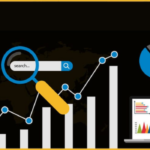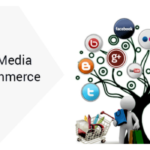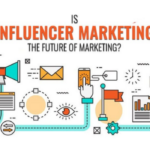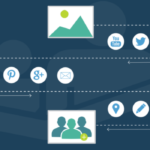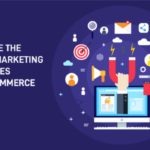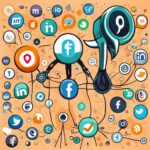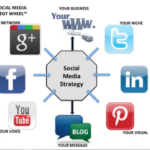Introduction:
In the ever-evolving landscape of business, the future of marketing is undeniably digital. As technology continues to advance and consumer behavior undergoes transformative shifts, embracing digital strategies has become imperative for sustainable growth. In this blog post, we’ll explore the key aspects of the future of marketing and how businesses can leverage digital strategies to propel themselves forward.
Data-Driven Decision Making:
One of the pillars of the future of marketing is the reliance on data-driven decision-making. As the digital world produces an abundance of data, smart marketers are harnessing this information to gain insights into consumer preferences, behaviors, and trends. Utilizing analytics tools allows businesses to make informed decisions, optimize campaigns in real-time, and deliver personalized experiences to their target audience.
Rise of Artificial Intelligence (AI):
Artificial Intelligence is revolutionizing the marketing landscape. AI-powered tools enable marketers to automate repetitive tasks, analyze vast amounts of data at incredible speed, and provide personalized recommendations. Chatbots, predictive analytics, and machine learning algorithms are becoming integral components of marketing strategies, enhancing efficiency and enabling a more personalized customer experience.
Video Marketing Dominance:
The consumption of video content is skyrocketing, and it’s expected to dominate the digital marketing space. From short-form videos on social media to long-form content on platforms like YouTube, video marketing has proven to be a powerful engagement tool. Businesses that embrace video as a storytelling medium can connect with their audience on a deeper level, fostering trust and brand loyalty.
Social Media as a Marketing Powerhouse:
Social media platforms are no longer just a place for personal connections; they have evolved into powerful marketing channels. The future of marketing involves leveraging these platforms strategically to build brand awareness, engage with the audience, and drive conversions. Social media advertising, influencer collaborations, and community building are key elements in this digital era.
Personalization and Customer Experience:
Consumers now expect personalized experiences, and businesses that can deliver on this front stand to gain a competitive edge. Digital marketing allows for the customization of content, offers, and interactions based on individual preferences and behaviors. Tailoring marketing strategies to address the unique needs of each customer enhances customer satisfaction and builds long-term relationships.
Ephemeral Content and FOMO Marketing:
The concept of “Fear of Missing Out” (FOMO) has found its way into digital marketing through ephemeral content on platforms like Instagram and Snapchat. Marketers are leveraging the temporary nature of these posts to create a sense of urgency and exclusivity, driving engagement and conversions.
Conclusion:
The future of marketing is dynamic, driven by technological advancements and changing consumer expectations. Embracing digital strategies is not just an option; it’s a necessity for businesses aiming for growth and relevance. By harnessing the power of data, artificial intelligence, video marketing, social media, personalization, and ephemeral content, businesses can position themselves at the forefront of the evolving marketing landscape, ensuring sustained growth in the digital era.



